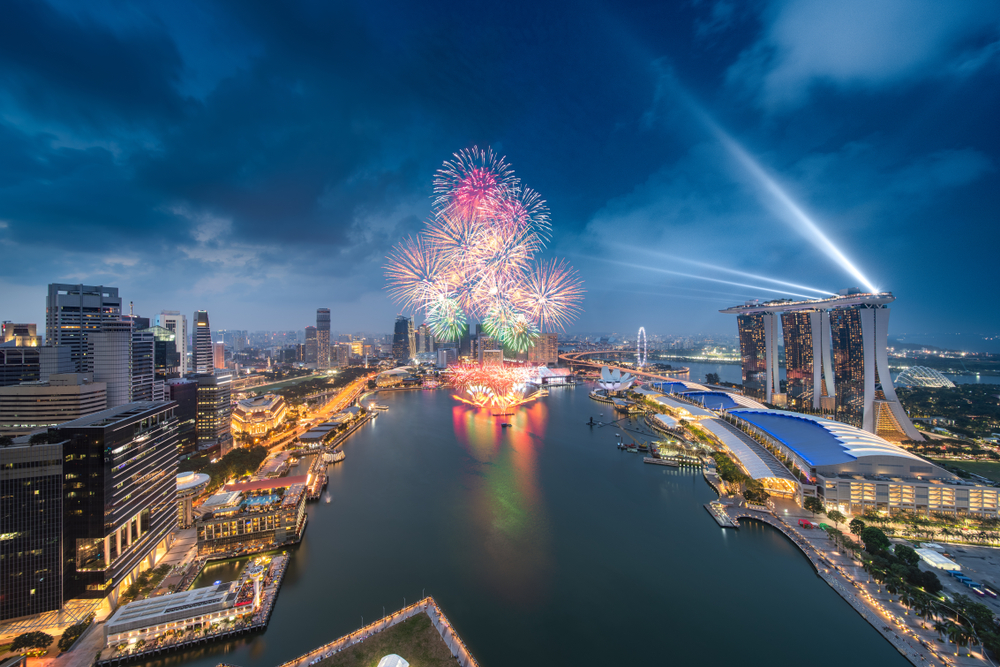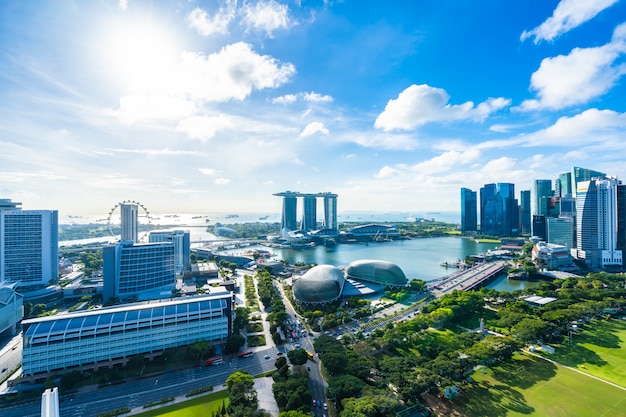In recent years, Singapore’s real estate sector has experienced a remarkable surge, drawing a diverse array of foreign investors eager to stake their claim in this bustling market. Positioned strategically at the crossroads of Asia, the city-state offers a unique blend of stability, innovation, and robust legal frameworks, making it a magnet for global capital.
With skyscrapers reaching for the clouds and vibrant neighborhoods pulsating with life, the allure of Singapore’s property landscape is undeniable. But what drives these investors to engage in this dynamic arena? Is it the promise of high returns, the quest for diversification, or perhaps the desire to be part of a thriving urban tapestry? As we delve into the intricate relationships and influences at play, it becomes clear that foreign investment is not merely a backdrop; it is a critical player shaping the future of Singapore’s real estate.
This article will explore the multifaceted role that international investors play, illuminating the motivations behind their choices and the impact they have on both the market and the city itself.
Motivations Behind Foreign Investment

Foreign investment in Singapore’s real estate sector is driven by a mosaic of motivations, reflecting both local and global dynamics. For many foreign investors, the allure of Singapore lies in its stable political climate and robust regulatory framework, which provide a sense of security that is often hard to find elsewhere in the region.
Economic growth projections, coupled with a strategic location as a gateway to Southeast Asia, further enhance its appeal. Investors are attracted not only by the potential for capital appreciation but also by enticing rental yields, making property ownership a tangible asset in a diversifying portfolio.
Moreover, the city-states commitment to sustainable urban development aligns with global trends emphasizing eco-friendly living, drawing in investors keen on maintaining a socially responsible image. Combined, these factors create a compelling narrative that keeps foreign money flowing into Singapore’s vibrant real estate market, transforming it into a bustling hub of activity.
Impact on the Local Real Estate Market
The influx of foreign investors into Singapore’s real estate market has undeniably transformed the local landscape, shaping both investment patterns and property values. Luxury condominiums and upscale commercial spaces, previously viewed as niche offerings, are now the epicenter of international attention, leading to skyrocketing prices and heightened competition.
As affluent buyers from countries like China and Indonesia seek refuge for their capital or a secure place to reside, neighborhoods that were once modest are experiencing gentrification at an unprecedented rate. This influx creates a dual-edged sword; while it enhances the prestige of these areas and stimulates economic growth, it simultaneously raises concerns about affordability for local residents.
Furthermore, the steady demand from abroad puts pressure on available housing, compelling developers to accelerate construction plans, adapting to meet both local needs and foreign desires, ultimately redrawing the blueprint of what real estate in Singapore looks like.
The Balancing Act: Benefits and Drawbacks of Foreign Investment

Foreign investment in Singapore’s real estate sector brings a mixed bag of benefits and drawbacks, creating a delicate balancing act that stakeholders must navigate. On one hand, the influx of foreign capital stimulates economic growth, enhancing property values and fostering urban development.
This financial boost can lead to improved infrastructure and increased employment opportunities, making the city-state an attractive destination for talent. However, the surge of foreign buyers can also inflate housing prices, pushing local residents out of the market and exacerbating issues of affordability.
Additionally, reliance on foreign investments may render the market vulnerable to external economic fluctuations, leading to uncertainties that could disrupt domestic stability. Thus, while foreign investments can catalyze prosperity, they also pose significant challenges that require careful management to safeguard Singapore’s housing market and the wellbeing of its citizens.
Conclusion
In conclusion, foreign investors play a crucial role in shaping Singapore’s dynamic real estate sector, driving both growth and innovation within the market. Their contributions have not only bolstered property values but have also stimulated the development of high-quality residential projects like Upperhouse, which exemplifies the blend of luxury and sustainability that appeals to both local and international buyers. As Singapore continues to position itself as a global economic hub, the ongoing influx of foreign capital will likely ensure the sustained vitality of its real estate landscape, paving the way for new opportunities and developments in the years to come.


